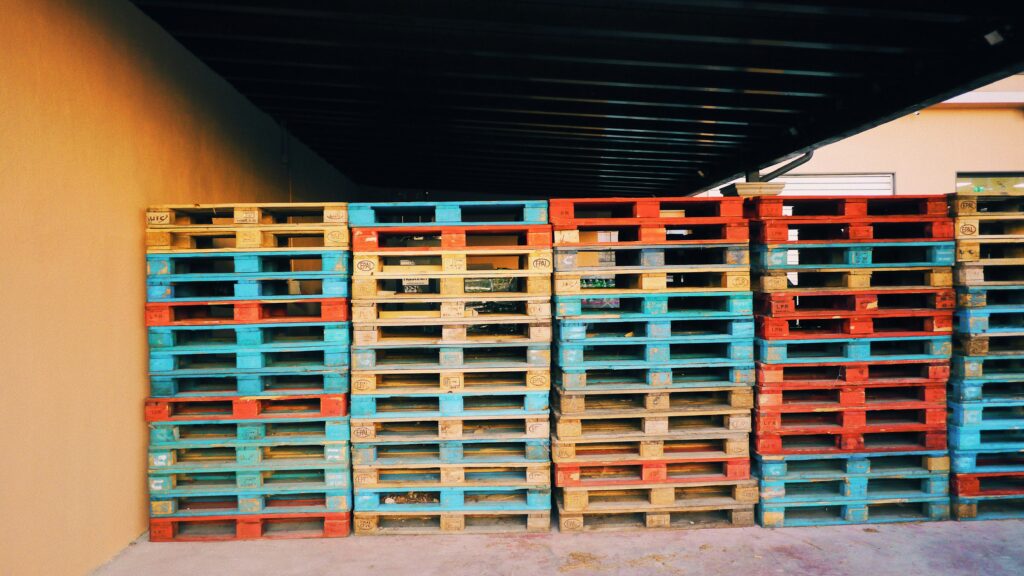Key Takeaways
- Understanding the critical role of custom pallets in supply chain efficiency.
- Exploration of materials and design choices that impact pallet sustainability.
- Insights into cost-effective practices for pallet management.
The Value of Tailored Pallet Solutions in Contemporary Logistics
The logistics industry, a complex web with many moving parts, finds one of its core elements in the humble yet indispensable custom pallet. Traditionally viewed as mere carriers, a custom pallet has transitioned into an essential components that optimize the storage and transportation of products. These intricately tailored solutions work wonders in reducing the risks associated with the shipping process, such as product damage during transit. By diligently crafting pallets to specific needs, businesses can enrich their logistical processes significantly.
Custom pallets cater to the diverse demands of modern logistics. From lightweight goods that require gentle handling to heavy-duty machinery necessitating robust support structures, the versatility of custom pallets means they are an ideal choice for any circumstance. Their application prevents goods from wearing and tearing during long hauls, regardless of the transportation method. Additionally, they help make more efficient use of transportation space, reducing transportation costs and fuel consumption.
Material Choices for Sustainability
In today’s environmentally conscious market, selecting the right materials for custom pallets is essential. The rise of sustainable logistics has increased the demand for recycled and responsibly sourced options. Wooden pallets made from trees can be reused multiple times and eventually recycled into wood chips or mulch. On the other hand, plastic pallets, made from recycled polymers, offer advantages such as durability and resistance to contaminants, pests, moisture, and chemicals. This versatility not only extends their lifecycle but also provides financial benefits. By incorporating eco-friendly materials, businesses can conserve resources and help reduce global waste.
Design Considerations
Custom pallets significantly impact logistics efficiency in supply chains by considering weight, size, and robustness. They provide stability for goods and are easy to handle by warehouse machinery. Lightweight yet sturdy materials reduce shipping weight without compromising safety. Ergonomic design eases manual handling and stacking, potentially reducing worker fatigue and injury. This design leads to improved warehouse management and a company’s competitive edge. Thus, thoughtful and ergonomically designed pallets are crucial for a company’s success.
Efficient and Affordable Pallet Handling Techniques
Effective pallet management is essential for reducing costs and promoting operational sustainability. Regular maintenance and repair, along with pallet pooling strategies, can significantly extend the life of pallets. These strategies help lower purchasing costs and minimize environmental impact by decreasing the total number of pallets needed. By reevaluating pallet management practices, companies can achieve substantial savings while ensuring long-term sustainability and economic viability. As trends evolve, businesses can adapt their guidelines and methodologies to control their logistics expenses.
New Technologies in Pallet Production
The pallet production arena is experiencing an influx of innovative technologies paving the way for bright production lines. Automation and robotics are prime examples of how technology has reshaped the landscape, optimizing production processes and cutting down on labor-intensive tasks. These technologies ensure rapid output without compromising the quality of the pallets produced.
The emergence of AI and machine learning has improved these techniques, offering sophisticated quality control systems. Such systems quickly detect deviations or faults in the pallets, thus maintaining high-quality standards consistently. This technological leap promises an enhanced length of service for pallets and opens new doors to customization and scalability, meeting the ever-growing demands of global logistics.
Minimizing Environmental Impact
Their environmental implications are considerable, given the vast quantities of pallets used globally. However, the industry is making noteworthy strides to mitigate these impacts. The sector minimizes its ecological footprint by introducing biodegradable materials and recycling programs. It is increasingly common to see initiatives aimed at maximizing the lifecycle of pallets while reducing waste generation.
Such efforts align well with global sustainability goals, paving a path toward greener logistics solutions. These strategies support the industry’s efforts to lower carbon emissions and provide businesses with a framework for responsible and sustainable operations catering to environmentally aware consumers.
Future Trends in the Pallet Industry
The trajectory of the pallet industry is veering towards adaptation and innovation, spurred by mounting environmental consciousness and technological advancements. As sustainable business practices become imperative, the demand for environmentally friendly pallets increases, fostering an industry shift to refine greener solutions.
Emerging technologies such as IoT contribute to developing smart pallets,enhancing asset tracking accuracy and management. This revolution not only bolsters logistical efficiency but also reinforces transparency and accountability within supply chains. Such advancements signal an evolved industry and epitomize the integration of sustainability and technology in modern business practices.
